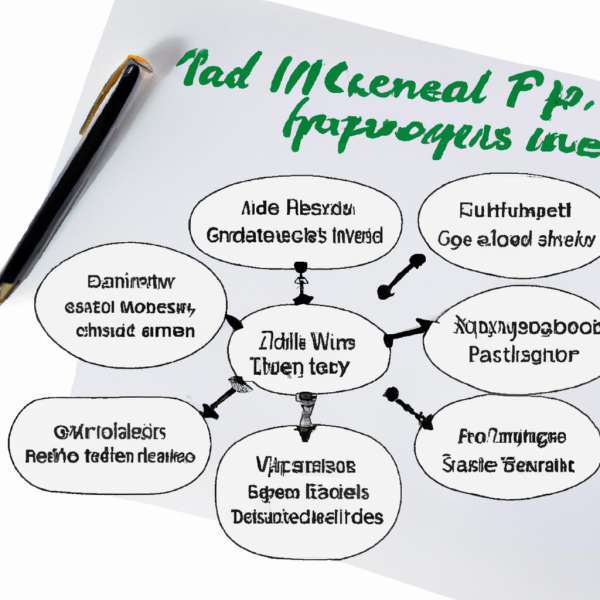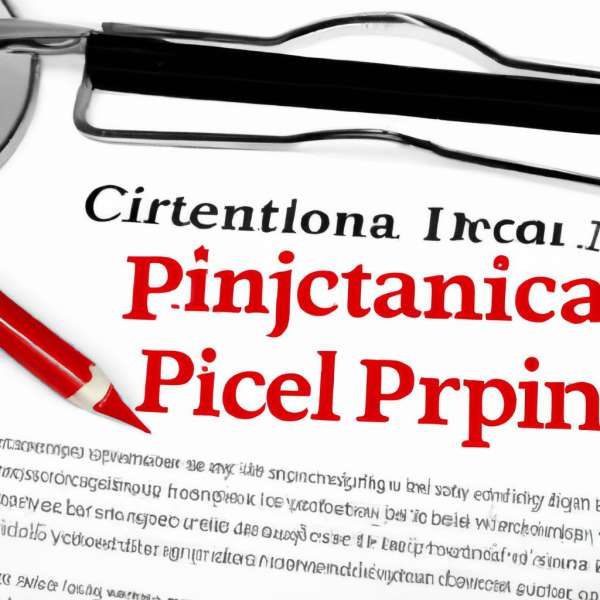In the intricate tapestry of auto insurance, Personal Injury Protection (PIP) Insurance often emerges as a crucial yet understated thread. As the highways and byways teem with commuters navigating the ebb and flow of daily life, the unforeseen reality of accidents can shake the foundations of personal safety and financial security. Unlike traditional liability coverage that focuses on the other party’s injuries and damages, PIP steps in as a proactive guardian, providing a safety net for policyholders and their passengers. This article delves into the multifaceted role of PIP insurance, illuminating its benefits, limitations, and unique position within the landscape of vehicular coverage. Whether you’re a seasoned driver or a newcomer to the realm of auto insurance, understanding the importance of PIP is essential in recognizing how it can safeguard your well-being when the unexpected occurs. Join us as we explore this vital aspect of insurance that often goes unnoticed until it truly matters.
Understanding Personal Injury Protection Insurance and Its Importance
Personal Injury Protection Insurance, commonly known as PIP, is a crucial component of auto insurance that provides coverage for medical expenses, lost wages, and other associated costs resulting from car accidents, regardless of who is at fault. This safety net is particularly significant in no-fault states, where drivers are required to carry PIP coverage. By doing so, individuals can ensure they receive timely medical treatment and support without the stress of lengthy legal battles over liability.
One of the primary functions of PIP insurance is to alleviate the financial burden that can accompany an accident. In addition to covering medical bills, PIP can provide compensation for:
- Rehabilitation costs: Anything from physical therapy sessions to home modifications.
- Lost income: If you are unable to work due to your injuries, PIP helps replace lost wages.
- Childcare expenses: If an accident leaves you incapacitated, PIP can help cover the cost of hiring a caregiver for your children.
- Funeral expenses: In tragic cases, PIP can also assist with funeral costs.
It’s essential to understand how much coverage you may need, as limits can vary significantly. Understanding these limits can help you prepare for unforeseen circumstances, ensuring that you are adequately covered in case of an emergency. Here’s a simple comparison table to illustrate typical PIP coverage limits:
| Coverage Type | Typical Limit |
|---|---|
| Medical Expenses | $10,000 to $250,000 |
| Lost Income | $5,000 to $30,000 |
| Funeral Expenses | $2,000 to $8,000 |
| Rehabilitation | Varies by policy |
PIP insurance not only offers immediate assistance after an accident but also plays a vital role in stabilizing your financial and emotional well-being in turbulent times. With PIP coverage, you are empowered to focus on recovery rather than the complexities of medical bills and lost income, allowing for a smoother journey back to normalcy.

Key Benefits of PIP Insurance in Protecting Your Well-Being
Personal Injury Protection (PIP) insurance serves as a critical safety net for individuals facing unexpected challenges following an accident. With the rising costs of medical treatments and rehabilitation services, having PIP can drastically alleviate the financial strain during recovery. This coverage helps you focus on your healing process rather than being burdened by bills.
One of the most significant advantages of PIP insurance is its ability to cover a wide range of expenses. These can include:
- Medical Expenses: Covers hospital visits, surgeries, and therapies.
- Lost Wages: Compensates for income lost due to being unable to work after an accident.
- Childcare Costs: Assists with expenses that arise if you require help taking care of dependents during recovery.
- Funeral Costs: Provides financial support in the unfortunate event of a fatality.
Additionally, PIP insurance can improve your overall recovery experience by offering:
- Access to Quality Care: Ensures immediate treatment without the worry of upfront costs.
- Peace of Mind: Knowing you have support in case of unexpected incidents aids in a more focused recovery.
- Faster Treatment: Reduces delays in obtaining necessary medical care, which can positively impact your health outcomes.
Understanding the specific benefits that PIP insurance can provide allows individuals and families to make informed decisions about their insurance needs. The assurance of comprehensive financial coverage means you can prioritize health and well-being, knowing that the resources are available to support you through recovery.

How PIP Coverage Enhances Your Claim After an Accident
After an accident, the stress of navigating through insurance claims can be overwhelming. This is where **Personal Injury Protection (PIP)** comes into play as a crucial safeguard. Unlike traditional liability insurance, PIP provides immediate financial assistance, allowing you to focus on recovery without the added burden of steep medical bills and lost wages. With PIP coverage, you can access benefits that significantly enhance your claim, ensuring that you don’t face financial hardship during a challenging time.
One of the most compelling advantages of PIP is its capacity to cover various expenses regardless of fault, which makes it a unique asset in the claim process. Key benefits include:
- Medical Expenses: PIP covers hospital bills, surgeries, rehabilitation, and other necessary medical treatments resulting from the accident.
- Lost Wages: If you’re unable to work due to your injuries, PIP compensates for a portion of your lost income.
- Daily Living Expenses: Should your injuries prevent you from performing everyday tasks, PIP can help cover costs incurred from additional home assistance or care.
Furthermore, PIP can accelerate the claims process. Since it provides coverage from the outset, you won’t have to wait for liability determinations, which can often lead to delays. PIP allows you to expedite access to necessary resources, making it easier to receive care and focus on your recovery. In addition, when negotiating settlements, having comprehensive PIP coverage can strengthen your overall position: insurance companies are more likely to offer favorable terms when they see you are adequately protected against the financial impact of your injuries.
| Benefit | Description |
|---|---|
| Quick Access | Compensation without fault determination |
| Comprehensive Coverage | Medical expenses and lost wages covered |
| Financial Relief | Eases the burden of unexpected expenses |

Tips for Choosing the Right Personal Injury Protection Plan
Choosing the right Personal Injury Protection plan is crucial for ensuring comprehensive coverage in the event of an accident. Start by assessing your specific needs, such as your health status, lifestyle, and the extent of coverage you desire. Different plans offer varying benefits, so it’s essential to evaluate what is most important to you. Here are some key factors to consider:
- Coverage Amount: Ensure the plan covers a significant portion of your medical expenses and lost wages. Consider your financial situation and what you can afford out-of-pocket for unforeseen circumstances.
- Policy Limits: Look for policies with higher limits, which can provide better protection.
- Additional Benefits: Some plans offer extras like rehabilitation services, funeral expenses, or home care. Determine if these are important to your personal situation.
- Network Providers: Check if your preferred healthcare providers are part of the plan’s network, as this can affect your costs and access to care.
Understanding the nuances of different plans can significantly impact your final decision. Here’s a quick comparison of common features you might encounter:
| Feature | Plan A | Plan B |
|---|---|---|
| Coverage Limit | $25,000 | $50,000 |
| Medical Expenses Covered | 100% | 80% |
| Lost Wages Compensation | Up to $500/week | Up to $1,000/week |
don’t hesitate to seek advice from professionals or utilize online comparison tools to weigh your options effectively. Reading user reviews and consulting with friends or family members who have experience with particular insurance providers can also be invaluable. Remember that the right PIP plan not only protects you but also brings peace of mind in challenging situations. Choosing wisely means you will be prepared when it matters most.
In Conclusion
understanding the role of Personal Injury Protection (PIP) insurance is crucial for navigating the often complex landscape of automobile coverage. As a financial safety net, PIP serves to protect not only your pocket but also your health and wellbeing in the aftermath of an accident. By covering medical bills, lost wages, and rehabilitation costs, it alleviates some of the burdens that come with unexpected injuries. As you delve deeper into the intricacies of your auto insurance policy, consider how PIP can fit into your overall financial strategy. Whether you’re a seasoned policyholder or a first-time buyer, becoming well-versed in the nuances of PIP empowers you to make informed decisions, ensuring that you and your loved ones are adequately protected on the road. Ultimately, investing the time to understand these protections can be as vital as the coverage itself, paving the way for a more secure and confident driving experience.


